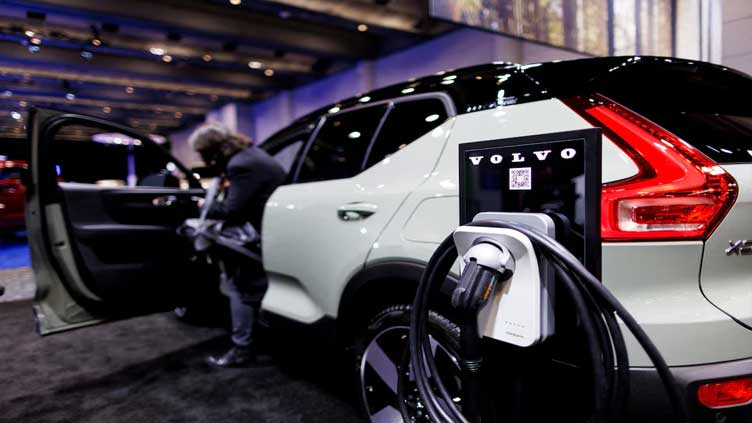Volvo Cars scales back margin and revenue ambitions

Technology
Volvo Cars scales back margin and revenue ambitions
(Reuters) - Swedish automaker Volvo Cars slashed its margin and revenue ambitions for a second time in a year on Thursday, a day after it abandoned its EV-only target as the impact of tariffs and reduced demand for electric vehicles continues to hurt.
Slowing demand for EVs, partly due to a lack of affordable models, as well as the effects of EU, U.S. and Canadian tariffs on electric cars made in China have made market conditions increasingly difficult for automakers.
Volvo Cars, which is majority-owned by China's Geely, lowered its target for operating profit margin excluding joint ventures and associates to 7-8% from above 8%.
It also scrapped a sales goal of 550 billion-600 billion Swedish crowns ($53.5 billion-58.4 billion), instead saying it expected to outgrow the premium car market.
It cited "increased complexity, especially in relation to global trade and tariffs".
This is the second time in a year that Volvo has walked back margin and revenue goals, after stepping away in January from a target for annual EBIT of between 8-10% and sales of 1.2 million cars annually by mid-decade first announced in 2021.
"The sharpened business ambitions we announce today further reinforce our commitment to drive value as a business, while remaining true to our purpose," CEO Jim Rowan said in a statement.
Shares in Volvo Cars were up 3% at 0744 GMT, having fallen on Wednesday as the company lowered its electric vehicle car sales ambition. Year-to-date, shares are down 10%.
In releases ahead of a planned investor event in Gothenburg, Volvo said that starting with its flagship electric EX90 model - which the Swedish automaker will begin delivering to customers this month - it will have a single "technology stack" for all car models.
Volvo Cars said separately it will use a single software system backed by powerful chips from Nvidia for all future models and will rely on "mega castings" - massive presses to make large single-piece aluminium vehicle underbodies - to cut costs for electric cars.
Chief Engineering & Technology Officer Anders Bell said that through the use of megacasting, Volvo will be able to increase the use of recycled aluminium and cut emissions throughout its supply chain.
Separately, on Thursday, a 3% year-on-year increase in car sales was reported in August.


